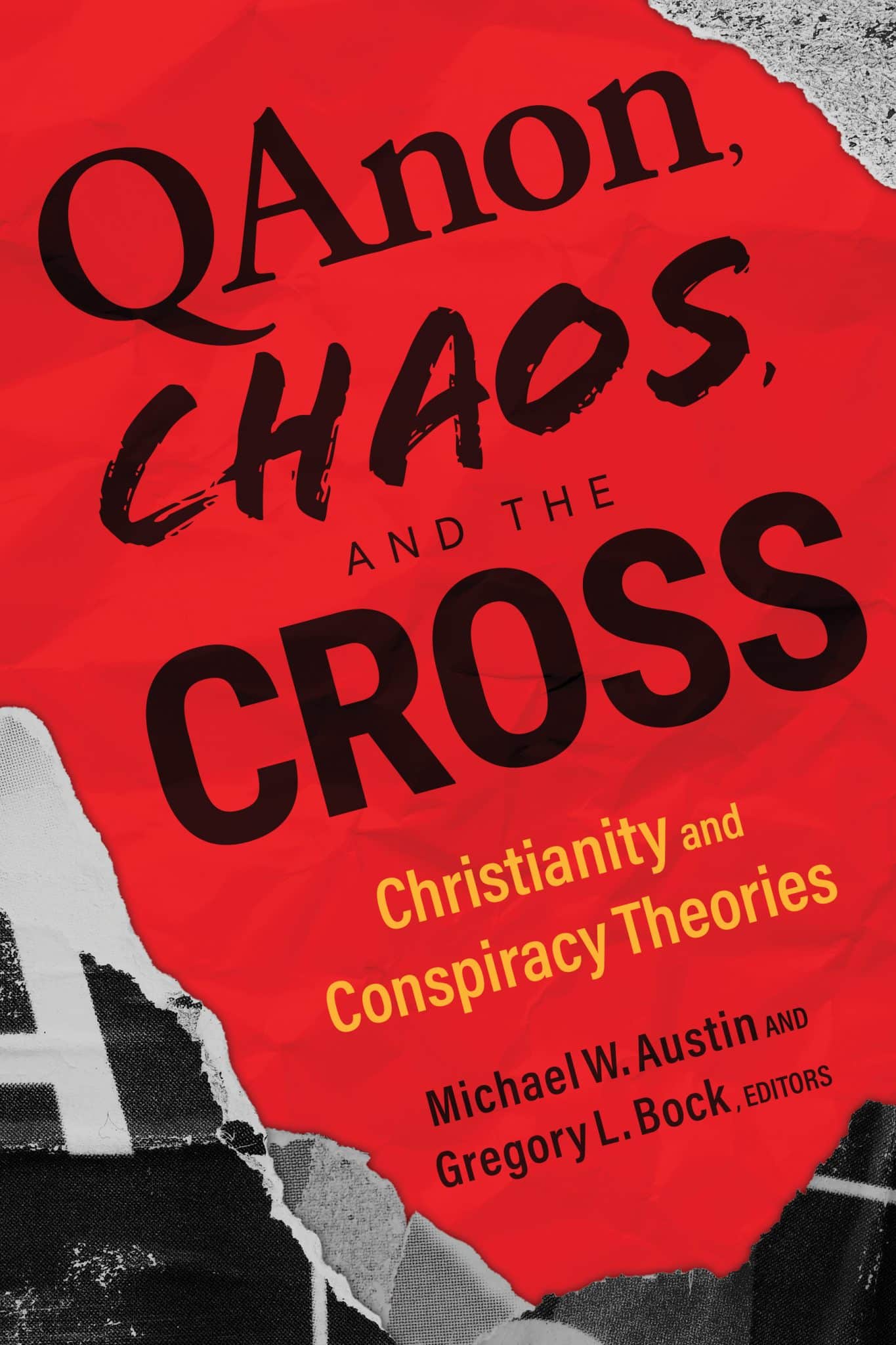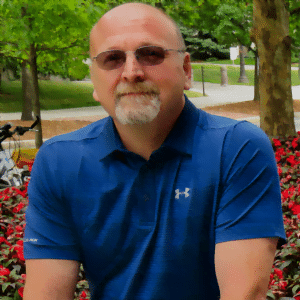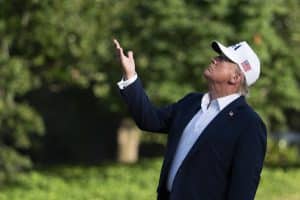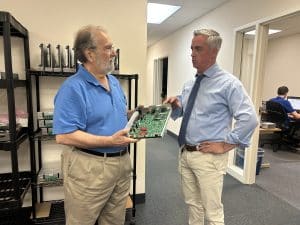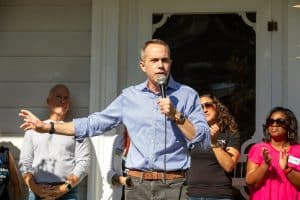QAnon, Chaos, and the Cross: Christianity and Conspiracy Theories is a collection of two dozen short essays that does not always focus on its main topic but offers some important insights on faith and conspiracies.
Editors Michael W. Austin and Gregory L. Bock have two goals: dissecting the relationship that Christians have with QAnon and, perhaps more importantly, introducing readers to the nuances involved in Christian approaches to the influence of conspiracy theories among the faithful. And it is a problem, according to a series of recent surveys. Among the general public, belief in QAnon varies from 4 percent to 15 percent, according to 2021 polls. However, a February 2021 American Enterprise Institute report indicated that 19 percent of Republicans agreed with at least one QAnon belief and 29 percent of white evangelical Republicans did so. (223-224) Today, Christians are just as likely, if not more so, to embrace unfounded claims about health, politics, or life in general.
The intersection of QAnon and Christianity is a constant in conspiracy circles. QAnon “drops” on the internet reflect continuous warnings about existential moral threats from:
“Anthony Fauci; Francis Collins [Former Director of the National Human Genome Research Institute]; the Centers for Disease Control and Prevention (CDC); public health officials at the national, state, and local level; school boards; Marxists; critical race theorists; and on and on it goes.” (73)
One of the strangest examples of the hybrid relationship between QAnon and Christianity came in the form of a benediction offered by Jacob Anthony Chansley – the “QAnon Shaman” – in the well of the House on January 6th:
“Thank you Heavenly Father for gracing us with this opportunity to stand up for our God-given unalienable rights…. To allow us to exercise of our rights, to allow us to send a message to all the tyrants, the communists, and the globalist that this is our nation not theirs, that we will not allow the America—American way, of the United States of America—to go down….” (190)
READ: Can Education Solve Our Country’s Conspiracy Theory Problem?
Unfortunately, a detailed treatment of QAnon only sporadically appears throughout the work, referenced in terms of basic context and the now infamous 2016 incident at Comet Ping Pong pizza. The best analysis of Christianity and QAnon appears more than two-thirds of the way through the book in Chase Andre’s “The Religious Rhetoric of QAnon.” In it, Andre discusses how combinations of “conspiracy theory and alternate spirituality” originate and gain traction among Christian communities. The author very effectively examines different forms of religious rhetoric, making distinctions between “Spiritual Language” and “Spiritual Warfare.” (194-195) In the process, Andre helps the reader understand how meaningful faith can be leveraged into a means for scapegoating, nativism, and hatred. QAnon embraces a form of Christian nationalism where: “’God’ is worn like a jersey, a sign that they are on the winning side.” (201)
Most of the rest of QAnon Chaos and the Cross is valuable because it takes the reader far beyond the tempting cliches about Christian faith that frequently appear on our media landscape. Many chapters speak to self-awareness when mediating reasonable conversations, a practice that is a fundamental part of any effective ministry. Patience, taking the form of “sympathetic awareness” is a virtue in that it demonstrates tolerance of disagreement and might serve as a brake against anger, which may allow emotion to cloud sound judgement. (168) Compromise does not mean abandoning convictions, but vigilance in situations that might allow “secondary beliefs, opinions, and preferences to creep into primary status where they dilute and obscure what is truly essential.” (61)
More than a few authors also speak to the productive relationship between science and ethics, which is interesting given the recent popularity of Oppenheimer. In QAnon Chaos and the Cross, the issues are more mundane than nuclear holocaust, but critical in determining the cadence of daily life. The reader is encouraged to practice “intellectual humility” when they encounter and respond to conspiracy theories. (3) Ethics may allow a person to make the distinction that “the impactful, consequential life is not the same as a meaningful life.” (51) The January 6th insurrection certainly had consequences, entirely negative to the country. Making a meaningful difference requires an ethical foundation, constructed in good faith and with some diligence.
READ: QAnon, the Republican Party, and the Politics of Moral Crusades
Advice on perhaps the best way to develop a meaningful approach comes from Rich Langer. He advises us to seek out “inconvenient teachers” who challenge our beliefs and create strategies to advance beyond them. (164)
QAnon Chaos and the Cross is a valuable book. It contributes to our understanding of a dangerous movement in America that misinterprets faith to shield its own reactionary belief. In a broader sense, Austin and Bock offer a collection of methodologies useful to people sincerely interested in navigating the many public forums – school boards, voting precinct, classrooms – where we congregate and share ideas. In many cases, the authors are the “inconvenient teachers” that we need right now.
